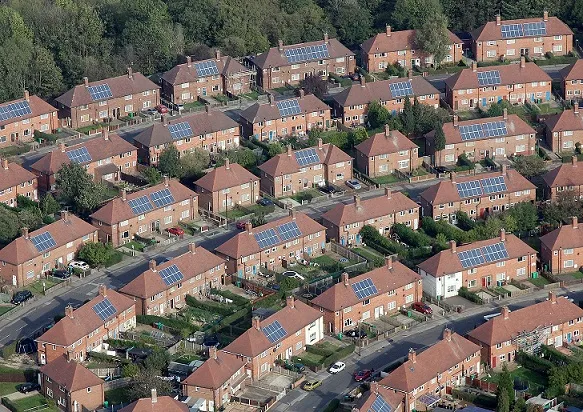Residential solar increases home costs by average of ₤ 30,000.
- The value of residential solar has been promoted after brand-new study exposed that the technology can enhance the worth of residences by over ₤ 30,000.

The research comes from EffectiveHome.co.uk, a site devoted to giving information and support for home owners concerning solar. It located that installing solar PV can enhance home rates by an average of ₤ 32,459 across the UK.
Houses in London see the biggest increase, with the value leaping by ₤ 90,000. The country's resources consequently has the biggest increase in value of the ten biggest cities in the UK, followed by Bristol (₤ 45,142), Edinburgh (₤ 40,095) and also Leicester (₤ 31,577).
The equity gains are likewise "significant", according to the study, with ₤ 14,000 included in a ₤ 100,000 property, ₤ 70,000 contributed to a ₤ 500,000 property and also ₤ 280,000 added to a ₤ 2 million home.
The worth is created in the capability to reduce energy expenses-- especially as these have actually raised by 37% on average throughout lockdown-- as well as the ability to market excess generation back to the grid.
" We wish our searchings for are a welcome shock to building sellers across the UK that might be uninformed that making energy reliable changes to their residence, can make such a considerable contribution to its valuation. There is a clear appetite amongst property buyers to transfer to a residential or commercial property which is sensitive to spiralling energy costs, global warming and the setting we live," Dan Graby, director at EffectiveHome.co.uk, said.
Installations of residential solar greater than doubled in June 2020, with a 185% rise videotaped compared to May. This came after an MCS survey in April that located that 90% of installers were being adversely impacted by COVID-19.
Residential solar likewise has a duty to play in the brand-new develop market, with the government detailing in October its alternatives for the Future Homes Standard. Among these consisted of combining better material standards with carbon conserving technology such as PV. Nevertheless, the Committee on Climate Change (CCC) has criticsed the Future Homes Standard as "not going far enough", specifically as it isn't set to be available in up until 2025.
Also read

